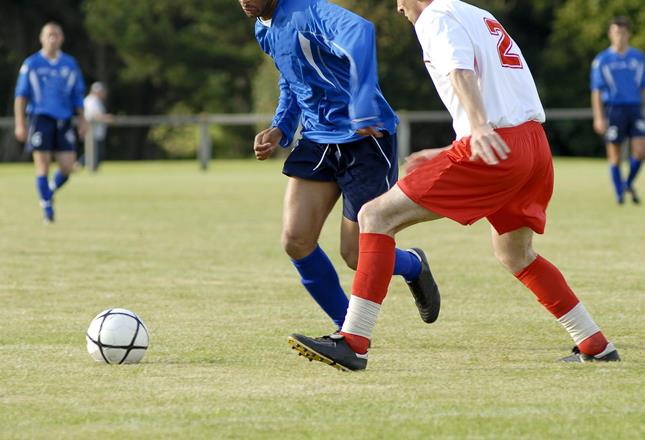
The FA’s proposed sale of Wembley Stadium to the owner of Fulham FC and the Jacksonville Jaguars for a sum in the region of £600m has generated a huge amount of media and public interest. It’s fair to say it is an emotive issue – many fans and commentators clearly feel the stadium is a part of the national fabric and that its sale should not be countenanced under any circumstances.
While this public debate is important – and it's right that The FA consults widely before agreeing its final decision – it arguably obscures a more fundamental, existential question thrown up by the sale: what is a governing body for? The answer to this question matters because it defines the objectives a governing body should pursue and, in turn, the organisational and governance structures it puts in place to deliver them.
In this context, The FA’s approach to Wembley is as much about governance and organisational effectiveness as it is about finances. (And even in purely financial terms, it is not straightforward: the potential £600m in receipts represents a ‘once and for all’ opportunity which needs setting against the potential long-term revenue Wembley might generate).
Many of our members reading this might consider The FA to be in a privileged position, having to decide on the sale of a major asset worth £600m. And in a sense, they’d be right. But in many other respects The FA is no different to any other governing body in terms of the challenges it faces.
The FA Chairman, Greg Clarke put his finger on these common challenges in his speech to the FA Council following a bruising encounter with the DCMS Select Committee late last year. It is worth reading in full for it shows that governing bodies must first answer the question ‘what are we for?’ if they are to be effective:
"We need to be simpler. This is an unwieldy and complicated organisation. We are a circa £500m corporate entity. We are an industry wide regulator. We are a development agency with a 50-strong national franchise network. We are an educator and accreditor of a workforce. We run two of the most iconic sporting venues in the world. The most famous cup competition and we try and get England teams to win international tournaments. And all that is done under the most intense media and public scrutiny.
"I am not surprised that we continue to go through Chairmen and Chief Executives – to deliver all of that is an immense challenge - well beyond what would be considered a sensible scope in the corporate world.”
Looking beyond football, there are many similar examples where governing bodies struggle to balance a wide range of competing demands.
The recent and well-deserved success of the England netball team at the Commonwealth Games was followed by the revelation that concern over long-term funding for the national team keeps the England Netball CEO ‘awake at night’. This is itself a reflection of the fact that the governing body is at the same time trying to grow the grassroots, organise and promote a domestic league, generate commercial revenue and support the national team, all while preparing for a World Cup on home soil in 2019.
To be clear, none of this is to criticise but merely to point out that many governing bodies are striving to do their best yet are stretched in terms of their capacity to deliver well against any one objective. Which brings us back to the first question: what is a governing body for?
There is no right or wrong answer and for each organisation it will be different, but it may well be that for some – like The FA – the organisation needs to be much more focussed on its core purpose. In other words, doing less will achieve more.
It may also lead to further questions about whether some functions might be best fulfilled by others or through new and different partnership arrangements. For example, should a governing body organise and promote competitions as well as regulate them? Should a governing body be responsible for owning, operating or investing in facilities? Should a governing body deliver training and education for grassroots participants?
And while addressing these structural questions may be difficult, doing so in a constructive way is likely to deliver significant benefits in terms of governance and commercial performance. A simpler, more focussed organisation should mean the board is able to keep abreast of activity more easily and identify more quickly where things might be going wrong. Similarly, looking at alternative ways to deliver certain functions could open up new commercial opportunities if partners have more ‘skin in the game’ and therefore see a larger potential reward for their investment.
I certainly don’t have all the answers but, as The FA and its proposed sale of Wembley shows, as a sector we need to at least be brave enough to ask the right questions if we’re to become fit for the future.
Be kept informed of all our latest blogs and news articles by signing up to our newsletter and following us on Twitter.
This afternoon, the Chancellor delivered her Budget speech to Parliament, outlining decisions on tax and spending.
Read moreAhead of the Chancellor’s Budget statement on 26 November, we take a look a look at the key areas to be aware of and the work the Alliance has been doing lobbying on behalf of members.
Read moreGovernment has today formally launched a consultation on reforming the role of statutory consultees in the planning system. The consultation runs for eight weeks, closing on 13 January 2026.
Read moreJoining the Sport and Recreation Alliance is pretty simple, but worthwhile!
Register now